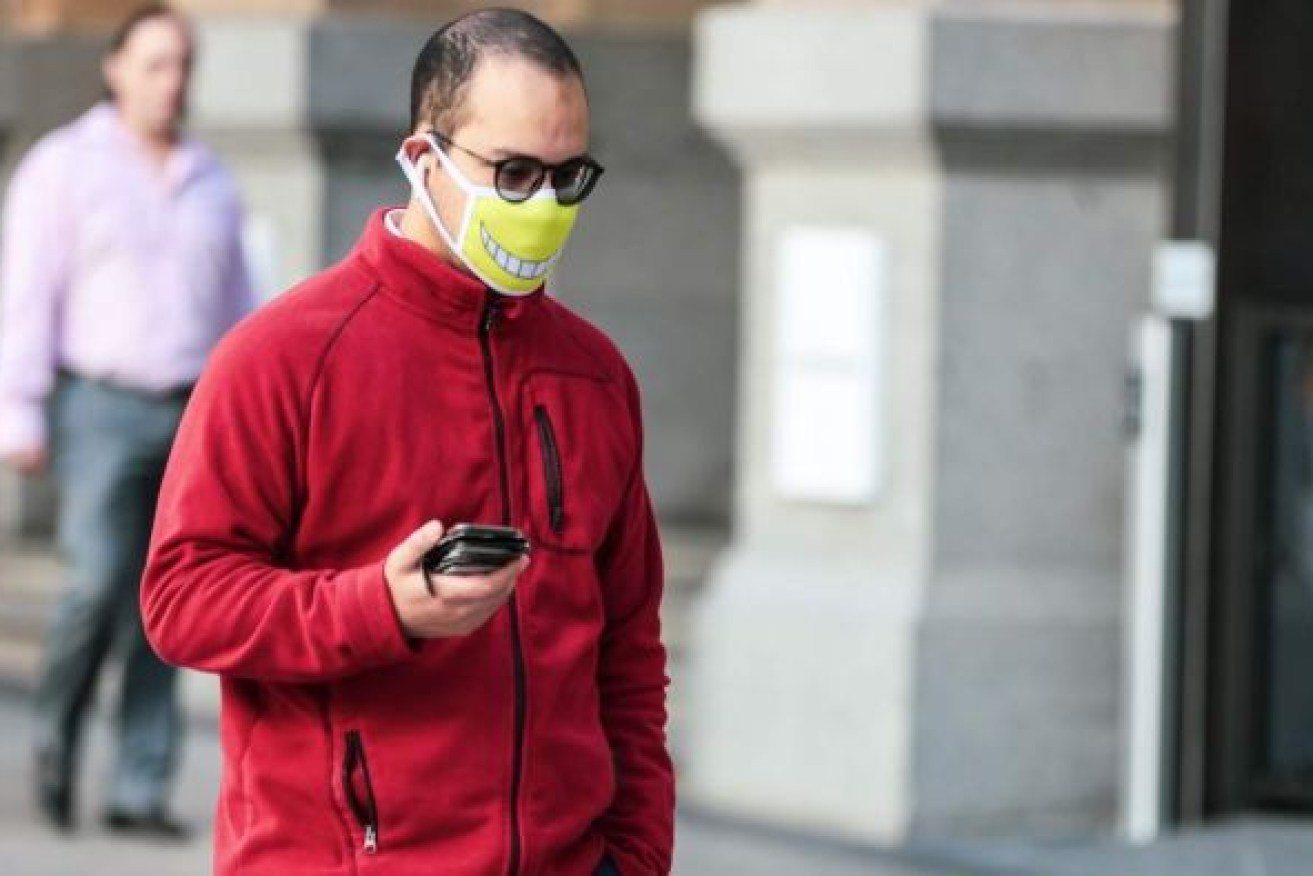Queensland’s not ‘blessed’ – we’re all just managing virus extremely well, says expert
A Queensland infectious disease expert says the state is not “blessed” and that a combination of factors like social distancing and COVID-safe business plans have contributed to low coronavirus case numbers after the latest cluster.

Professor Nigel McMillan says Queenslanders have done an outstanding job listening to health advice. Photo: ABC
Queensland recorded two new cases of COVID-19 overnight, including one that adds to the mystery over the detention centre cluster. The other was in a Cairns woman in hotel quarantine after returning from Papua New Guinea.
Director of Infectious Diseases Immunology at the Menzies Health Institute Queensland Professor Nigel McMillan said the record-breaking testing number of 20,856 yesterday meant it was very unlikely there was any community transmission.
“I don’t think we’re missing a whole lot of cases,” he said.
“We had 20,000 tests done [on Tuesday], that’s a huge number.”
A corrective services trainer, aged about 60, has tested positive, requiring contacts – 14 recruits and 11 colleagues – to be quarantined and tested. Prisons have also been forced into indefinite lockdown as a precaution.
Queensland Health has yet to find a link between the trainer and the detention centre, however Chief Health Officer Jeannette Young today said the man lived at Forest Lake, and worked at Wacol, where there had been other cases.
Corrective Services Commissioner Peter Martin said the recruits may have worked in centres earlier this week and, as a precaution, prisons south of Capricornia had been placed into “extreme isolation”.
Young said genomic sequencing tests had been unable to conclusively prove the detention centre cluster, already at 11 cases, was linked to the Logan cluster of five. No detainees or former detainees have tested positive, and the final results on staff are expected on Friday.
McMillan said several factors could be attributed to Queensland’s low case numbers after the outbreak so far.
“We can say we keep dodging a bullet but I honestly think that there’s a more rational explanation around the fact that Queenslanders are doing the right thing,” he said.
“It’s been a congregation of factors. We’re not particularly blessed in any kind of way.
“Our physical distance is good, and our businesses have good COVID plans.”
McMillan said health authorities had done an outstanding job mitigating the spread and that Queenslanders had also taken the pandemic seriously.
“People have taken individual responsibility,” he said.
“Part of Victoria’s problems has been their structural issue around contact tracing, isolation, quarantine … and some failures in government there has probably contributed to a worse situation.
“We haven’t had to face that here [in Queensland].”
Could Queensland’s sunny weather be helping?
McMillan said Queensland’s weather could also have played a very small role in so far curbing wide-spread community transmission.
“We know that some viruses spread more easily in the winter,” he said.
“Research out of the University of Sydney suggests that as the humidity drops down, the case numbers go up.
“The more humid places have fewer cases.
“We [shouldn’t] rely on that as a protection measure but it’s a nice bonus.”
He said population density in Brisbane could also have had an impact.
“The virus needs lots of people to be close together for a decent amount of time,” Professor McMillan said.
“Obviously in cities where it’s quite dense, that’s the case.”
Not out of the woods yet
Queensland’s Chief Health Officer, Dr Jeannette Young, said while there had not been any sign of community transmission yet as a result of the detention centre cluster, there was still a risk.
“There is still a risk over the next week that we will see [community transmission] because those people were out and about in the community,” she said.
“We could have more cases out there in the community that have resulted in this cluster.
“Clearly not a lot because we’re doing so much testing but that means we’ve got to keep those very high rates of testing in place.”
Young said further genomic testing was underway to find the “missing link” between the current cluster and the Melbourne-Logan group.
Five people tested positive for coronavirus after three women went to Melbourne and skipped hotel quarantine before returning to Queensland.
Early genomic testing results showed the clusters may be connected but authorities were yet to find the case linking the two.
“We actually don’t know what the link is for this cluster,” Young said.
“Where did they actually originally get it from? Which means we might have more cases out in the community related to this cluster.”
Young commended Queenslanders on their uptake of social distancing and urged anyone to get tested if they had any symptoms.
“It’s been really good to see the amount of social distancing happening out there in our community,” she said.
Deputy Premier Steven Miles also urged Queenslanders to keep coming forward to get tested.
“A high testing rate is the only way we can assure ourselves that we are finding all of the positive cases of this virus,” he said.
– ABC / Jessica Rendall, additional reporting Sean Parnell












